Am amintit in postarea trecuta despre o alta cladire istorica din centrul Stuttgartului si anume Biserica Sfintei Cruci (Stiftskirche)..
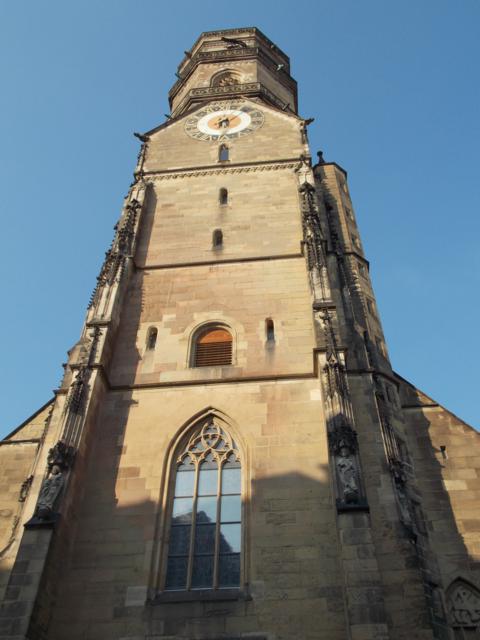 Biserica Sfintei Cruci (Stiftskirche), Stuttgart
Biserica Sfintei Cruci (Stiftskirche), Stuttgart
Asa cum se intampla in cazul multor biserici medievale si aceasta a fost construita pe locul altor asezaminte bisericesti. In secolul al XI-lea, aici era semnalata o mica biserica sateasca dar in 1240 o basilica romanica i-a luat locul. Secolul al 14-lea a adus cu sine transformarea in Biserica a Sfintei Cruci si largirea ei, care i-a conferit un stil gotic. Tot aceasta este si perioada in care au inceput sa se inmormanteze aici ducii (Grafen) de Wurttemberg. Patrunderea Reformei luterane pe teritoriul Germaniei a dus la prima predica evanghelica, tinuta in Stiftskirche in 1534.
Biserica a fost distrusa in timpul celui de-al doilea razboi mondial. Reconstructia ei a avut loc abia in 1958, iar ultima renovare dateaza din anul 2003. Aceasta a produs insa importante modificari, mai ales in interior.
In interior, biserica este foarte simpla, asa cum sunt toate bisericile evanghelice. Ceea ce atrage imediat privirea este rosul vitraliilor din spatele altarului si sculptura in lemn, infatisandu-l pe Isus rastignit pe cruce, plutind parca in spatiul bisericii.
interiorul simplu al bisericii
Caracteristica principala a bisericii, vazuta din exterior, este reprezentata de cele doua turnuri diferite ca stil. Turnul vestic are forma octogonala si este turnul principal al bisericii.
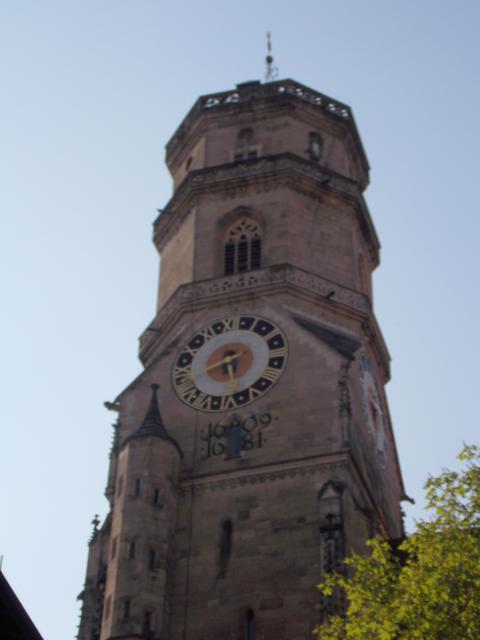 Turnul principal al bisericii (vestic)
Turnul principal al bisericii (vestic)
manerul interesant al usii principale
Turnul sudic are o forma patrata. El atrage atentia asupra unei usi interesante, pe care am gasit-o insa inchisa.
Turnul sudic al bisericii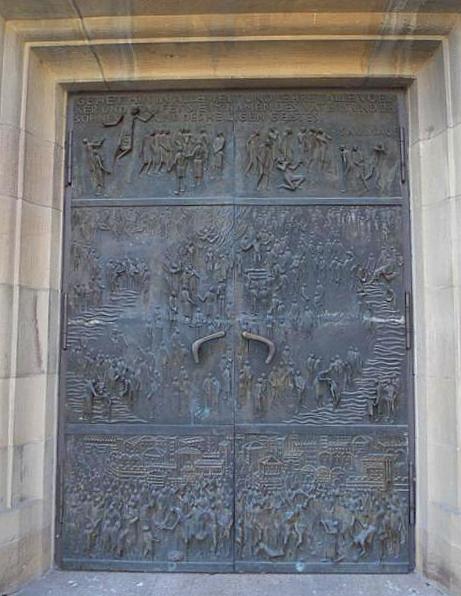
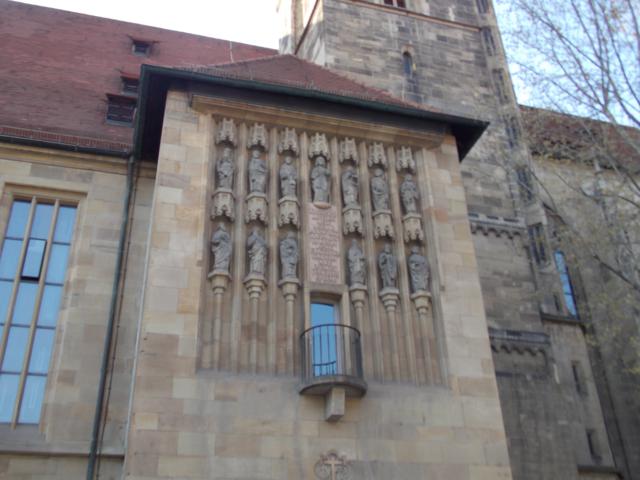 detalii
detalii
Pe stradutele care marginesc biserica se afla magazine, mai mult sau mai putin prospere, micile terase ale unor cafenele, florarii iesite in strada. E un colt viu al acestui oras dinamic, care alatura noul, istoriei.
frontispiciul unui mare magazin de jucarii, intrat in faliment
Stiftskirche, the Oldest Evanghelic Church in Stuttgart
Stiftskirche in Stuttgart-Mitte is the oldest evanghelic church in the city. Like other medieval churches, this one was also built on the place of others, much older. So, in the 11th. century here was a small village church. That one became a Romanic basilic during the 14th. century., when it was enlarged. Here is the place were the dukes of Wurttemberg were burried. After Luther’s reform extended to Germany, at Stiftskirche was delivered the first evanghelist sermon, in 1534.
The church was destroyed during the WWII but was rebuilt in 1958. The last renovation took place on 2003.
The interior was modified, It is simple, the only colors being the stainglass behind the altar. An interesting wooden sculpture representing Jesus on the cross, seems to float in the air. The exterior is characterised by two different towers. The west tower has a quadratic form, while the south tower is octogonal.
There are many shops in the area, which also attract people here.


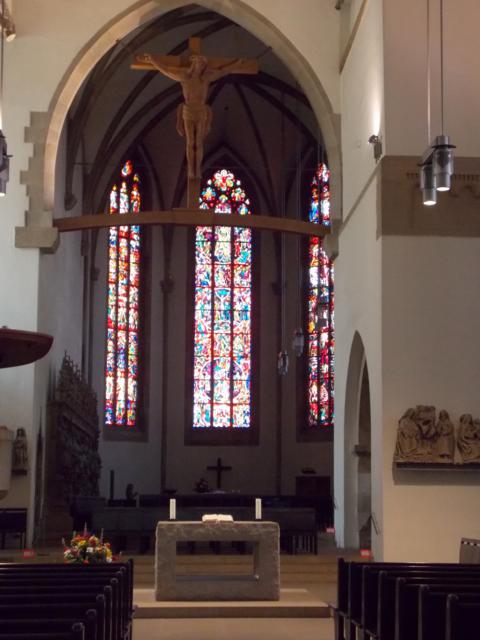
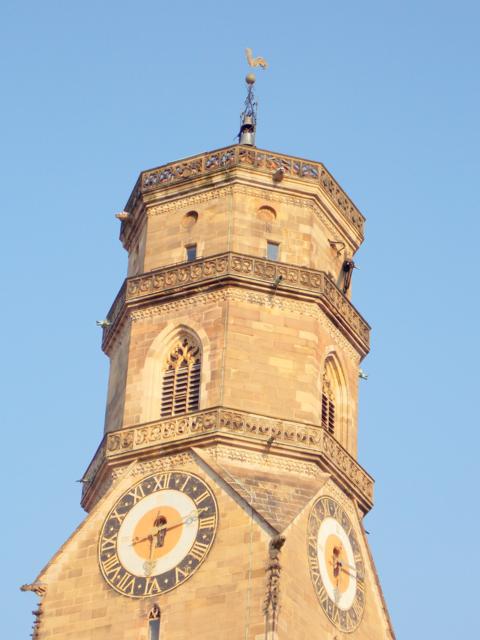
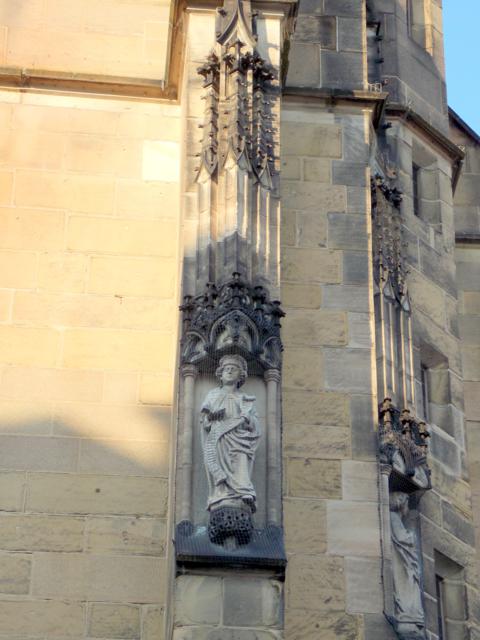
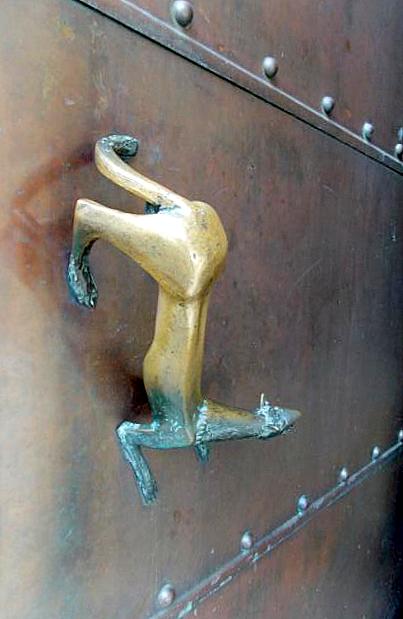
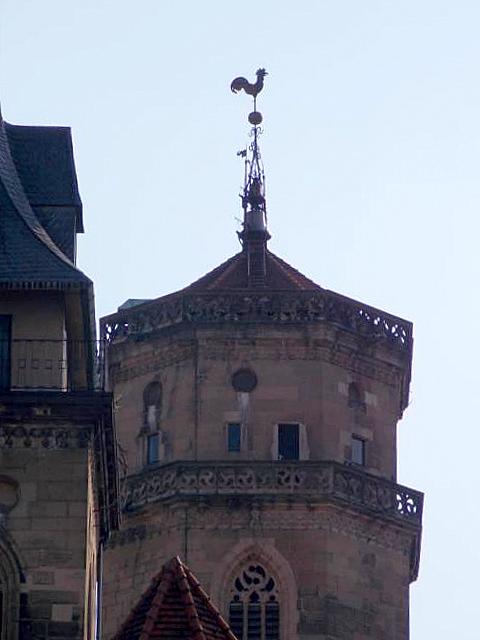
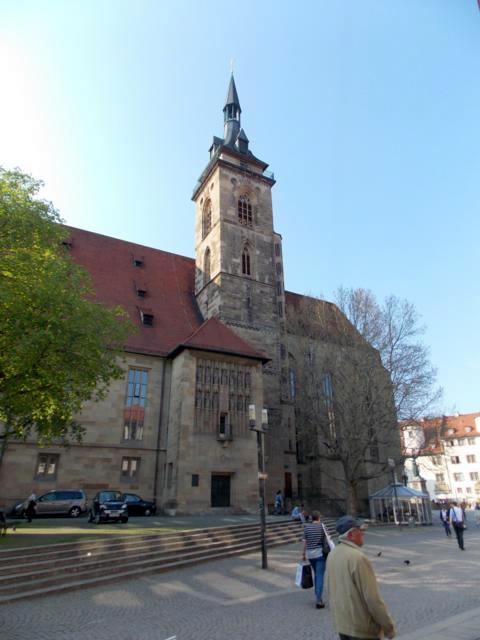
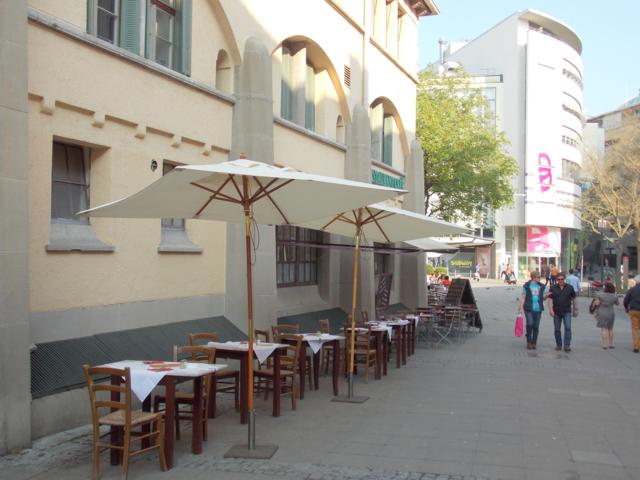


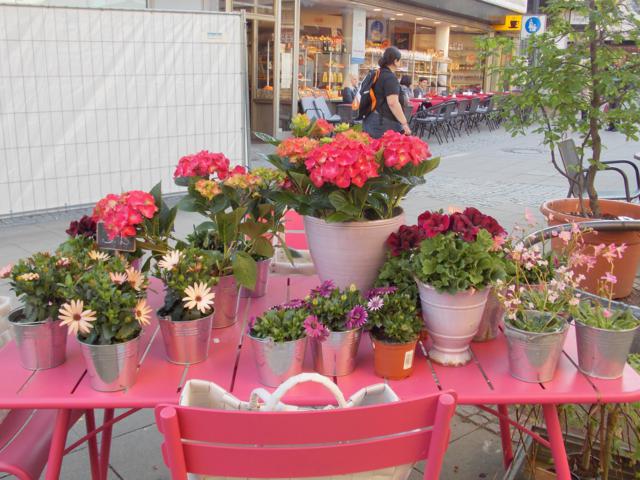
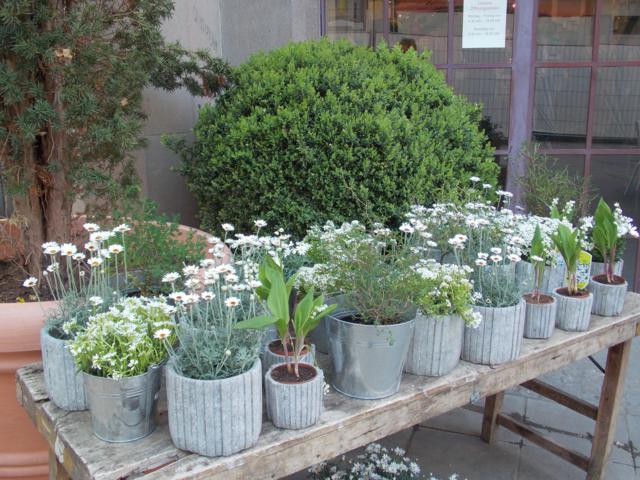
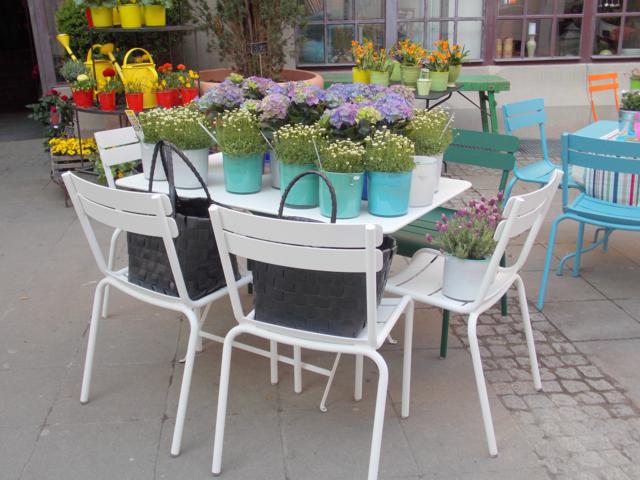
I like the tables with the flowers.
Me too, Randy:)
That is a really beautiful church. I loved the stained glass panel, and also the door handle.
Have a lovely day wherever you are right now!
Hello, rama! I’m home now. Thanks for your visit and appreciation. I’m behind with the reading of your blog but I will regain “the lost” time!
Hi TH! You show us so many wonderful views and details! What a fascinating place to visit… makes me want to be there. I am sorry for my infrequent visits. I am having to scale back on my blogging for now. But I would still like to say hello when I get a chance. I hope you have a good week :^)
Hi, Doug! You will always be welcomed here! Thanks for the appreciation.
Foarte frumoasa biserica , atat din exterior cat si in interior……Imi plac turnurile si stilul gotic.Cred ca este o atmosfera faina in jurul biseticii.
Foarte interesant este manerul de la usa bisericii.
Multumesc, Cartim!
This door handle is indeed very special. How nice that these details are therefore equal and stand firm can make to show. Very nice and detailed weather. I enjoy it
Isn’t it? Thanks for the visit, Helma!